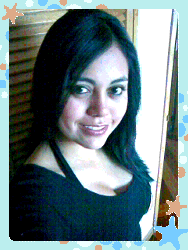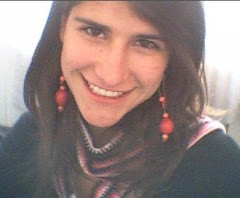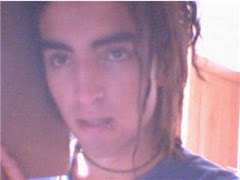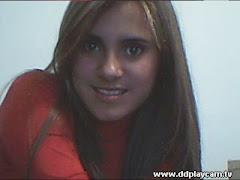VERONICA ENRIQUEZ CUJAR
CD. 200520893
Brazil
With its expansive territory, Brazil occupies most of the eastern part of the South American continent and its geographic heartland, as well as various islands in the Atlantic Ocean. .On Brazil's east coast, the Atlantic coastline extends 7,367 kilometers. In the west, in clockwise order from the south, Brazil has 15,719 kilometers of borders with Uruguay, Argentina, Paraguay, Bolivia, Peru, Colombia, Venezuela, Guyana, Suriname, and French Guiana (see table 2, Appendix). The only South American countries with which Brazil does not share borders are Chile and Ecuador. A few short sections are in question, but there are no major boundary controversies with any of the neighboring countries.In contrast to the Andes, which rose to elevations of nearly 7,000 meters in a relatively recent epoch and inverted the Amazon's direction of flow from westward to eastward, Brazil's geological formation is very old. The Serra do Mar Range hugs the Atlantic coast, and the Serra do Espinhaço Range, the largest in area, extends through the south-central part of the country (see fig. 3). The highest mountains are in the Tumucumaque, Pacaraima, and Imeri ranges, among others, which traverse the northern border with the Guianas and Venezuela.In addition to mountain ranges (about 0.5 percent of the country is above 1,200 meters), Brazil's Central Highlands include a vast central plateau (Planalto Central). The plateau's uneven terrain has an average elevation of 1,000 meters. The rest of the territory is made up primarily of sedimentary basins, the largest of which is drained by the Amazon and its tributaries. Brazil has one of the world's most extensive river systems, with eight major drainage basins, all of which drain into the Atlantic Ocean. Two of these basins--the Amazon and Tocantins-Araguaia--account for more than half the total drainage area. The largest river system in Brazil is the Amazon, which originates in the Andes and receives tributaries from a basin that covers 45.7 percent of the country, principally the north and west. The main Amazon river system is the Amazonas-Solimões-Ucayali axis (the 6,762 kilometer-long Ucayali is a Peruvian tributary), flowing from west to east. Through the Amazon Basin flows one-fifth of the world's fresh water. A total of 3,615 kilometers of the Amazon are in Brazilian territory. Over this distance, the waters decline only about 100 meters. The major tributaries on the southern side are, from west to east, the Javari, Juruá, Purus (all three of which flow into the western section of the Amazon called the Solimões), Madeira, Tapajós, Xingu, and Tocantins. The major river system in the Northeast is the São Francisco, which flows 1,609 kilometers northeast from the south-central region. Its basin covers 7.6 percent of the national territory. Only 277 kilometers of the lower river are navigable for oceangoing ships. The Paraná system covers 14.5 percent of the country. The Paraná flows south into the Río de la Plata Basin, reaching the Atlantic between Argentina and Uruguay. The headwaters of the Paraguai, the Paraná's major eastern tributary, constitute the Pantanal, the largest contiguous wetlands in the world, covering as much as 230,000 square kilometers.Below their descent from the highlands, many of the tributaries of the Amazon are navigable. Upstream, they generally have rapids or waterfalls, and boats and barges also must face sandbars, trees, and other obstacles. Nevertheless, the Amazon is navigable by oceangoing vessels as far as 3,885 kilometers upstream, reaching Iquitos in Peru. The Amazon river system was the principal means of access until new roads became more important in the 1970s. The São Francisco was also used for transportation in the past. Dams and locks in the Paraná system have made it an important artery for interstate and international trade in the 1990s.Climate: Although 90 percent of the country is within the tropical zone, the climate of Brazil varies considerably from the mostly tropical North (the equator traverses the mouth of the Amazon) to temperate zones below the Tropic of Capricorn (23°27' S latitude), which crosses the country at the latitude of the city of São Paulo. Brazil has five climatic regions--equatorial, tropical, semiarid, highland tropical, and subtropical.Temperatures along the equator are high, averaging above 25°C, but not reaching the summer extremes of up to 40°C in the temperate zones. There is little seasonal variation near the equator, although at times it can get cool enough for wearing a jacket, especially in the rain. At the country's other extreme, there are frosts south of the Tropic of Capricorn during the winter (June-August), and in some years there is snow in the mountainous areas, such as Rio Grande do Sul and Santa Catarina. Temperatures in the cities of São Paulo, Belo Horizonte, and Brasília are moderate (usually between 15°C and 30°C), despite their relatively low latitude, because of their elevation of approximately 1,000 meters. Rio de Janeiro, Recife, and Salvador on the coast have warm climates, with average temperatures ranging from 23°C to 27°C, but enjoy constant trade winds. The southern cities of Porto Alegre and Curitiba have a subtropical climate similar to that in parts of the United States and Europe, and temperatures can fall below freezing in winter.Precipitation levels vary widely. Most of Brazil has moderate rainfall of between 1,000 and 1,500 millimeters a year, with most of the rain falling in the summer (between December and April) south of the Equator. The Amazon region is notoriously humid, with rainfall generally more than 2,000 millimeters per year and reaching as high as 3,000 millimeters in parts of the western Amazon and near Belém. It is less widely known that, despite high annual precipitation, the Amazon rain forest has a three- to five-month dry season, the timing of which varies according to location north or south of the equator.
Climate: Although 90 percent of the country is within the tropical zone, the climate of Brazil varies considerably from the mostly tropical North (the equator traverses the mouth of the Amazon) to temperate zones below the Tropic of Capricorn (23°27' S latitude), which crosses the country at the latitude of the city of São Paulo. Brazil has five climatic regions--equatorial, tropical, semiarid, highland tropical, and subtropical.Temperatures along the equator are high, averaging above 25°C, but not reaching the summer extremes of up to 40°C in the temperate zones. There is little seasonal variation near the equator, although at times it can get cool enough for wearing a jacket, especially in the rain. At the country's other extreme, there are frosts south of the Tropic of Capricorn during the winter (June-August), and in some years there is snow in the mountainous areas, such as Rio Grande do Sul and Santa Catarina. Temperatures in the cities of São Paulo, Belo Horizonte, and Brasília are moderate (usually between 15°C and 30°C), despite their relatively low latitude, because of their elevation of approximately 1,000 meters. Rio de Janeiro, Recife, and Salvador on the coast have warm climates, with average temperatures ranging from 23°C to 27°C, but enjoy constant trade winds. The southern cities of Porto Alegre and Curitiba have a subtropical climate similar to that in parts of the United States and Europe, and temperatures can fall below freezing in winter.Precipitation levels vary widely. Most of Brazil has moderate rainfall of between 1,000 and 1,500 millimeters a year, with most of the rain falling in the summer (between December and April) south of the Equator. The Amazon region is notoriously humid, with rainfall generally more than 2,000 millimeters per year and reaching as high as 3,000 millimeters in parts of the western Amazon and near Belém. It is less widely known that, despite high annual precipitation, the Amazon rain forest has a three- to five-month dry season, the timing of which varies according to location north or south of the equator.
































